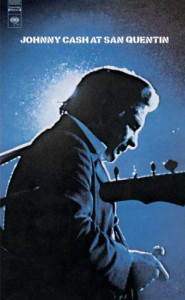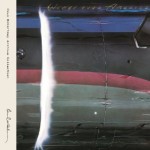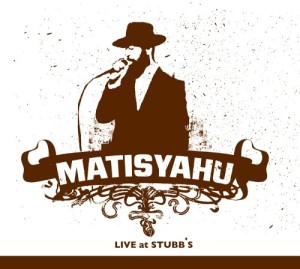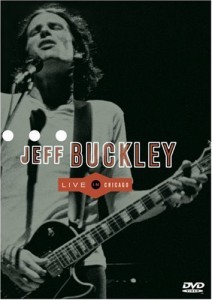It’s one of those perennial pub quiz questions isn’t it. How many songs were hits as a live recording, in front of an audience. I don’t mean those ‘as live’ jams, like the sort that the Beatles used to specialize in. I mean a full on live show, with an audience yelling, screaming, or heckling.
Live recording was – and still is – quite difficult to get right, so it’s something that hasn’t occurred that often.
Fingertips Part II
 There were earlier live hits I’m sure but the first one to make the top of the charts was Stevie Wonder’s Fingertips Part Two – a unexpected smash for Hitsville USA’s child prodigy, young Stevland Morris.
There were earlier live hits I’m sure but the first one to make the top of the charts was Stevie Wonder’s Fingertips Part Two – a unexpected smash for Hitsville USA’s child prodigy, young Stevland Morris.
The story with fingertips was that, stuck for what to do with his young teenage talent, Berry Gordy dug out a live recording he’d done of a Hitsville revue where little Stevie did an extended jam of an old instrumental from his flop debut. It certainly was exciting, but at ten minutes long? Gordy did a little editing and out it came as a 45. Parts one and two. The folks at Motown were usually meticulous at planning a hit, but this one foxed everyone and was a smash. How to follow this up was a fine problem for the Motown hit factory.
Fingertips - Original studio version
Boy Named Sue
 Johnny Cash had been around for nigh on fifteen years before his breakout hit. A heavy drinker and for a time heavily addicted to barbiturates, Cash had developed a real compassion for prisoners, partly because he’d come so close to doing time himself. Incredibly he was never incarcerated – he’d been arrested for all kinds of things but only ever spent a single night in the cells, once, famously, for picking flowers.
Johnny Cash had been around for nigh on fifteen years before his breakout hit. A heavy drinker and for a time heavily addicted to barbiturates, Cash had developed a real compassion for prisoners, partly because he’d come so close to doing time himself. Incredibly he was never incarcerated – he’d been arrested for all kinds of things but only ever spent a single night in the cells, once, famously, for picking flowers.
He’d been doing shows inside prisons since the early sixties, so it was only a matter of time before one of those shows wound up on record. One of those was Johnny Cash at Folsom Prison, and a second was Johnny Cash at San Quentin, and it was the latter that provided us with a novelty song Boy Named Sue, a song insipred by a Tennessee judge, Sue K. Hicks, who was one of the main prosecutors of the Scopes monkey trial in ’25.
“The culture of a thousand years is shattered with the clanging of the cell door behind you. Life outside behind you immediately becomes unreal. You begin to not care that it exists. All you have with you in the cell is your bare animal instincts.”
– Johnny Cash, From Cash’s original liner notes to the At Folsom Prison album
Johnny Cash was the kind of guy who had fun when playing live, acting up and playing to the crowd, all smiles and asides, goofing around during instrument breaks.
He performed a whole swathe of downright funny songs over the years, including Flushed From The Bathroom Of Your Heart, Look at Them Beans, Everybody Loves A Nut, Foolish Questions, and the Chicken In Black. I’m serious. Google ’em.
I know you’ve heard it a million times, but here it is again…
Boy Named Sue - Original studio version
Not by Johnny Cash there isn’t. The guy who wrote the song did one though, which is a great listen.
Kick Out The Jams
 The M C Five were a riot. Literally. They were born out of the Detroit roits of ’67. Local kids watching their city burn and set about planning for post-revolutionary reconstruction. “Brothers and sisters, the time has come for each and every one of you to decide whether you are going to be the problem or you are going to be the solution…” screamed the announcer at their shows.
The M C Five were a riot. Literally. They were born out of the Detroit roits of ’67. Local kids watching their city burn and set about planning for post-revolutionary reconstruction. “Brothers and sisters, the time has come for each and every one of you to decide whether you are going to be the problem or you are going to be the solution…” screamed the announcer at their shows.
The MC5 were signed to Elecktra records by the house hippie and in an effort to capture the chaos their debut album was recorded live at Detroit’s Grand Ballroom.
“The MC5 not only talked about revolution, we believed it. The part about destroying the government and taking over and shooting it out with the pigs and all that – that didn’t work. But the other part about the concept of possibilities, the revolution of ideas – that has changed the world.”
Wayne Kramer – Guitarist, MC5
The start of the record is unforgettable, with the famous exhortation to “kick out the jams, motherfuckers.” What kind of jam needed kicking was hotly debated – the interpretation was generally that it’s a song about revolution and liberation. The band though admitted that it was directed at the other 60s bands who would hog the stage with lengthly jam sessions.
But it got everyone worked up anyway.
Kick Out The Jams - Original studio version
Show Me The Way
 Since we’re into the seventies the man who made the biggest breakthrough with a live recording was hitherto unknown singer Peter Frampton. The big hit was Show Me The Way, a song he originally recorded a few years before, the second track on his Frampton album.
Since we’re into the seventies the man who made the biggest breakthrough with a live recording was hitherto unknown singer Peter Frampton. The big hit was Show Me The Way, a song he originally recorded a few years before, the second track on his Frampton album.
Show Me The Way was just a nice, very pleasant love song that benefited from a mix of acoustic and electric guitar textures spun out over a great beat and some excruciatingly memorable hooks, vocal and instrumental.
Bruce Eder, All Music Guide
Frampton was marketed well – those in the know were aware of his great live shows, but to release a double live album seemed like a niche move, not one to propel the singer to megastardom. But the rock god record sleeve and the unbelievably cheap price (compared to just about everyone else) made it a ‘must have’ at the time. Let’s face it, Frampton owned 1976.
Show Me The Way- Original studio version (track two)
Coming Up
 One of Paul McCartney’s biggest hits came about because American DJs insisted on flipping his single and playing the B-side. The song in its studio form shows a strong Talking Heads influence, with a repetitive synthesized funk beat to it. It was a labour of love for McCartney who had played every instrument.
One of Paul McCartney’s biggest hits came about because American DJs insisted on flipping his single and playing the B-side. The song in its studio form shows a strong Talking Heads influence, with a repetitive synthesized funk beat to it. It was a labour of love for McCartney who had played every instrument.
I built it up bit by bit without any idea of how the song was going to turn out. After laying down the drum track, I added guitars and bass, building up the backing track. I did a little version with just me as the nutty professor, doing everything and getting into my own world like a laboratory. The absent-minded professor is what I go like when I’m doing those; you get so into yourself it’s weird, crazy. But I liked it.
Paul McCartney
Apparently Coming Up is the song that finally got John Lennon out of bed and working in the studio again. The song’s better known for its MTV style music video, with Linda and Paul playing all kinds of different music business characters.
McCartney, they say, wasn’t best pleased when he found out Coming Up been promoted across American using the rock version on the flip side. It got to number one, though, and sold over a million, so he can’t really complain too much.
Coming Up - Original studio version
On Broadway
 My Auntie Christine was a huge Drifters fan and On Broadway was one of their finest – their hit follow up to Up On The Roof. It had previously been a single by The Crystals (who we know best for bubblegum hits like Da Doo Ron Ron) but their version wasn’t quite right to Dritfers producers Leiber and Stoller. So they took it back to school and gave it a bluesier edge; a feel more in keeping with 50s doo wop.
My Auntie Christine was a huge Drifters fan and On Broadway was one of their finest – their hit follow up to Up On The Roof. It had previously been a single by The Crystals (who we know best for bubblegum hits like Da Doo Ron Ron) but their version wasn’t quite right to Dritfers producers Leiber and Stoller. So they took it back to school and gave it a bluesier edge; a feel more in keeping with 50s doo wop.
George Benson recorded it himself 15 years later, by which time the song had been covered hundreds of times. Benson had been in the Miles Davis band during the mid sixties so he knew his chops – and moved into the seventies with a distinctly jazz funk, then pop soul feel to his music. He’d been known as a virtuoso guitarist for years, but his singing pushed him center stage. On Broadway of course is a winning song but the way that he scats along with his guitar is pretty special. A cut of this song from his Weekend in L.A. live album raced up the billboard charts.
On Broadway - Original studio version by The Drifters
King Without A Crown
 Around a decade ago now an album came out of nowhere by a guy we’d never heard of. Recorded at a a club in Austin, Texas known as Stubbs Bar-B-Q it was a live cut with raw emotion and passion. Matisyahu’s disc spoke to people, it really did.
Around a decade ago now an album came out of nowhere by a guy we’d never heard of. Recorded at a a club in Austin, Texas known as Stubbs Bar-B-Q it was a live cut with raw emotion and passion. Matisyahu’s disc spoke to people, it really did.
It is so rare that a live album from an unknown artist touches a chord with so many people, but a freewheeling reggae record by a Californian orthodox jewish kid? He made the tzitzit a cool fashion item overnight!
He is a vicious talent that is a sigh of relief for all the people who were tired of all the ghetto hip hop imagery out there, and to see a man with talent and an exotic personality make it big, blowing everyone out of the water. If you are wondering whether or not a Matisyahu show is worth money to see, Live At Stubb’s will hopefully ease out any doubts you have in your mind.
Reviewer DesolationRow at Sputnik Music
Mat feeds off his audience, has a great live rapport and a rousing live energy. Matisyahu single handedly put reggae back on mainstream airwaves as King Without A Crown made the top forty.
King Without A Crown - Original studio version
Purple Rain
Well I was going to place this gorgeous Prince smash at number three but the Purple People Eater tends to squash anyone who embeds his videos like a bug. There’s a cracking fourteen minute version doing the rounds but Prince’s lawyers a adept at shutting it down wherever it appears. That’s no fun, is it.
So here’s a pretty cool talent show cover and we’ll move swiftly on.
Purple Rain - X-Factor version by Ruth Lorenzo
Hallelujah
 Since Prince blew me out I’m including this mesmerizing version of Leonard Cohen’s Hallelujah by one of our great lost musical talents. Cohen’s original is more biblical and he would change the lyrics often in live performances. Buckley read it completely differently and made it passionate and soul stirring.
Since Prince blew me out I’m including this mesmerizing version of Leonard Cohen’s Hallelujah by one of our great lost musical talents. Cohen’s original is more biblical and he would change the lyrics often in live performances. Buckley read it completely differently and made it passionate and soul stirring.
It would have stayed a fairly obscure piece but for a chain of events that brought this thoughtful nocternal ballad kicking and screaming into the harsh mainstream daylight. Buckley’s version had been out for a while and turned up on the soundtrack for the movie Basquiat. Somehow it ended up on the Shrek movie and little kids were singing it.
What made Jeff Buckley work so well as a song interpreter was his way of uplifting songs that were introspective and emotional. With Halelujah he made a spiritual song sexual, and on the album that contains it he takes Lilac Wine from a supper club ballad into a transcendant epic.
Jeff Buckley’s sorrowful version is the definitive one and you can throw any subsequent version into the dumpster. How it became such a staple of talent shows and karaoke nights is beyond my understanding.
Shrek - studio version
Layla
 Layla is just one of those classic rock star love songs. Famously dedicated to another man’s wife (Patti Boyd, married at the time to the Beatles George Harrison. On record it is mighty, with a Duane Allman guitar solo and an extended piano coda that took the song to another place entirely.
Layla is just one of those classic rock star love songs. Famously dedicated to another man’s wife (Patti Boyd, married at the time to the Beatles George Harrison. On record it is mighty, with a Duane Allman guitar solo and an extended piano coda that took the song to another place entirely.
“There had to be some sort of telepathy going on because I’ve never seen spontaneous inspiration happen at that rate and level. One of them would play something, and the other reacted instantaneously. Never once did either of them have to say, ‘Could you play that again, please?’ It was like two hands in a glove. And they got tremendously off on playing with each other.”
Tom Dowd, Engineer and Producer, on Eric Clapton and Duane Allman.
Eric Clapton was never one for repeating himself, so when he was invited to take part in MTV’s Unplugged TV series he decided to introduce a whole new arrangement of one of his best known songs, which was much slower and with a reworked riff. The piano coda was dispensed with altogether.
Layla - Original studio version
No Woman No Cry
 No Woman No Cry was a chuckaway track on Marley’s Natty Dread album, the first made without his campadres Peter and Bunny. It’s a great album, introducing the feminine harmonies of the I-Threes and featuring the rich rhythm section of Carly and Family Man Barrett, now free from their duties in producer Lee Perry’s house band, The Upsetters.
No Woman No Cry was a chuckaway track on Marley’s Natty Dread album, the first made without his campadres Peter and Bunny. It’s a great album, introducing the feminine harmonies of the I-Threes and featuring the rich rhythm section of Carly and Family Man Barrett, now free from their duties in producer Lee Perry’s house band, The Upsetters.
“The song is about the strength in the mama of course, strength in the ladies. And we love a woman with a backbone. Something like a wishbone! They have to be like a she lion! Woman strong, you know, not depending on the man. Of course the man is there to help you, then for every successful man, there is a good woman.”
– Aston Family Man Barrett, bassist Bob Marley and the Wailers
The version that caught fire with the public was from a live album recorded in London, where the original reggae blues was transformed into an passionate ghetto melodrama. As a kid it was the first time I’d heard the band and it’s a mighty song.
Marley seems caught up in the emotions – so emotional with its “everything’s gonna be alright”. Now we’ll turn a blind eye to the oh so familiar churchy keyboard refrain so reminiscent of Procul Harum’s “Whiter Shade of Pale” and Johann Sebastian Bach.
No Woman, No Cry - Original studio version
ABOUT THE AUTHOR






